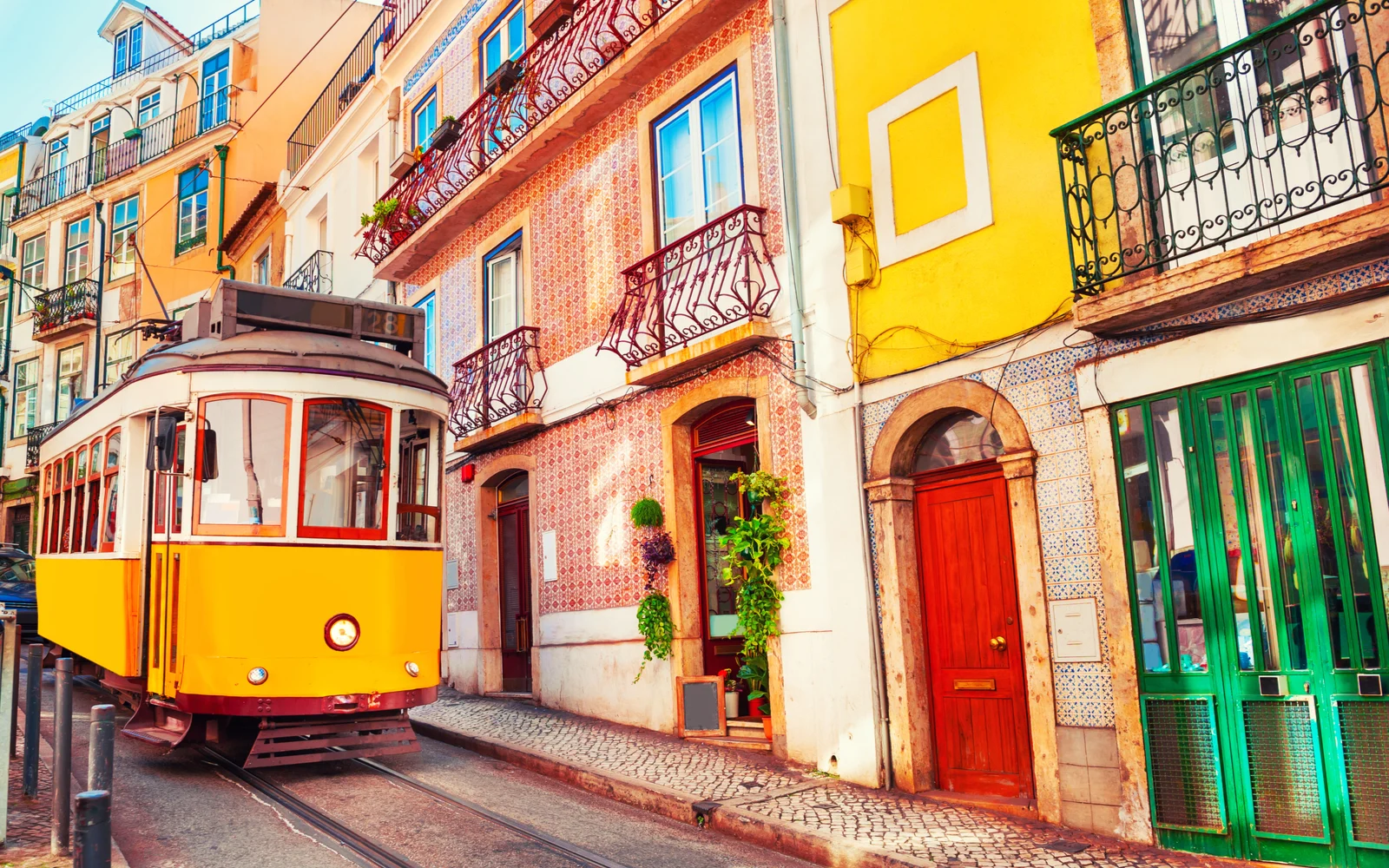Is Portugal safe to visit in 2025?
Portugal is a very safe destination with low crime rates and a stable political climate. While some petty crimes like pickpocketing occur, violent crime is rare. Travelers should exercise normal precautions, and the country’s Level One travel advisory from the U.S. State Department reflects its safety.
Long overshadowed by its larger, more famous neighbor Spain, Portugal is now a prime tourist destination in Southern Europe. Even during the pandemic-impacted 2021 tourism season, Portugal saw nearly 10 million international tourists.
Visitors to Portugal certainly have a lot to see. The cities of Lisbon and Porto are full of centuries of history and beautiful architecture.
The country has amazing nature, from the pristine beaches of Madeira to the cliffs of Lagos. Visitors can also enjoy famous Portuguese hospitality, wine, and gastronomy, including the delectable pasteis de nata.
But while this storied country is rich in history and culture, is Portugal safe to visit? Here’s our take.
Is Portugal Safe to Visit?
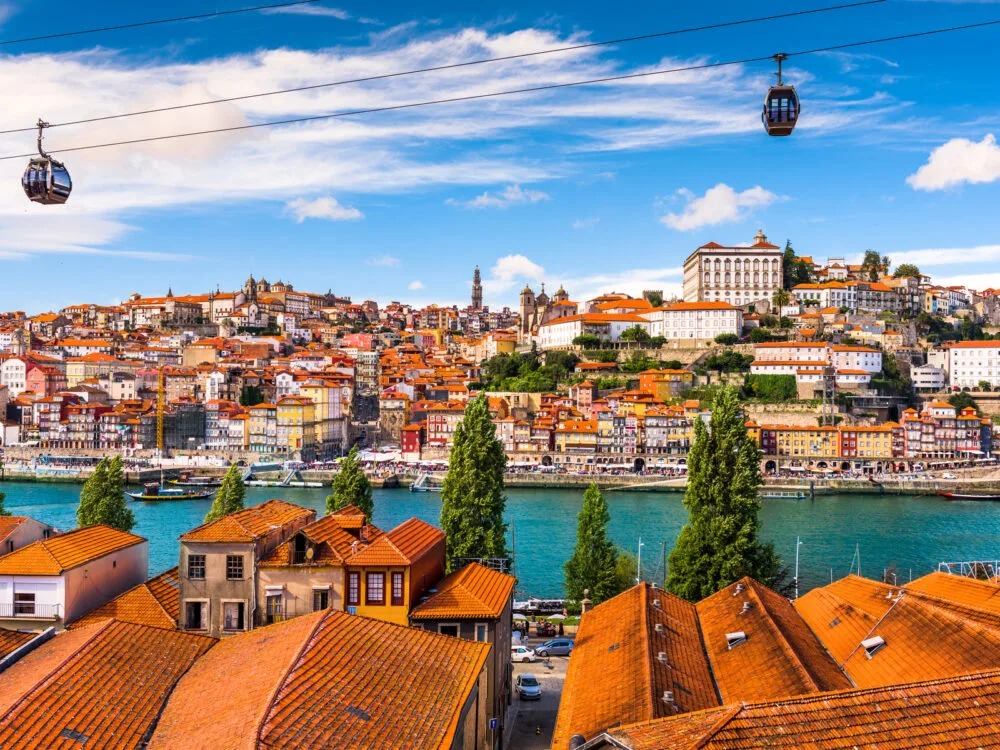
ESB Professional/Shutterstock
Yes, Portugal is one of the safest places to visit in the whole world. Crime rates are low, and rates of violent crime are practically nonexistent.
While big cities such as Lisbon do have certain sketchier neighborhoods, even those are not dangerous, especially if you go during the day. To get a feeling for how safe Portugal is, all you have to do is look at the travel advisories that other countries have for the country.
The United States State Department put Portugal under a Level One travel advisory, advising tourists to just exercise normal precautions while in the country.
Obviously you shouldn’t leave your common sense at home when packing, but with a few basic precautions, you’re almost guaranteed to have a great time in Portugal. There are a few reasons why Portugal is so safe.
The political climate is very stable. Although Portugal was under a military dictatorship until the 1970s, the political situation has stabilized greatly in the past few decades.
There are sometimes demonstrations, including strikes by unions, but they are rare and usually peaceful (still, you may want to avoid large crowds of people marching through the streets of Lisbon).
Crime does occur in Portugal. Common crimes include:
- Pickpocketing
- Bag snatching
- Scams
- Vehicle break-ins
- Hotel break-ins
- Assault
Still, crime rates are very low. The overall stability of the country probably contributes to the low crime rates. It’s worth noting that Portugal is not going to be as safe for all visitors.
In 2020, Portugal recorded a record number of hate crimes, most of them racially motivated. In July 2020, a black actor named Bruno Candé was murdered in a hate crime. Perpetrators often target people of African or Romani descent, or those who appear to belong to those groups.
If you are a person of color, you should still visit Portugal, but be mindful of the potential for negative experiences. Finally, it’s important to look at the risk of natural disaster.
Portugal has few natural disasters. It sits on an active fault line so there may be tremors, but there hasn’t been a major earthquake in decades. In the summer, forest fires are common so be careful when hiking.
You need to be the most careful when swimming on the coast. Pay careful attention to the flags on signed beaches and only swim on beaches with green flags as that means it is safe to swim.
Ignoring the warning could result in a fine or, even worse, drowning in dangerous conditions. The Atlantic Ocean is a strong place to swim in and the tides and currents are no joke.
Crime in Portugal
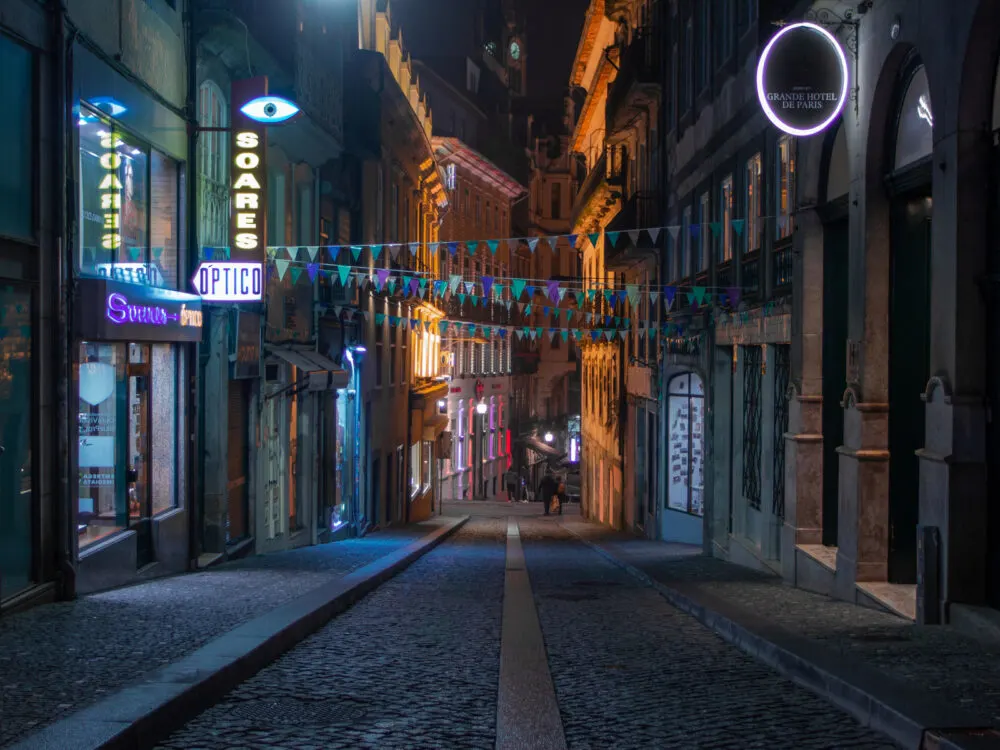
Iryna Savina/Shutterstock
The primary concern for most tourists visiting anywhere is crime. Nobody wants to plan a vacation just to come home without a wallet, or worse. Luckily, Portugal is one of the best places in the world to visit even if you are concerned about crime.
Portugal has one of the lowest crime rates in the world. In fact, according to the Global Peace Index map in 2022, Portugal was the sixth-safest country in the world.
The Global Peace Index ranks countries according to several factors, including societal safety, ongoing domestic and international conflict, and militarization. Portugal has low risks for all three factors.
If you look at crime statistics in Portugal, they all tell a great story. For example, the homicide rate is very low. In 2020, the homicide incidence rate was 0.91 incidents per 100,000 people, a very low number. Rates of other violent crimes are also very low.
Assaults sometimes happen, usually in the context of a theft gone wrong, but they are rare enough to still be news items in Portugal. One violent crime that is increasing unfortunately is rape.
Portuguese authorities investigated 26% more rape incidents in 2021 than in the previous year. The actual incidence rate of rape in Portugal is probably much higher as many victims are afraid to report to the police due the authority’s notorious inaction in sexual assault cases.
Unfortunately, many parts of Portugal are still very conservative and patriarchal.
Although the vast majority of rape cases involve local women, if you are a female traveler, you should still be careful when in bars or clubs to avoid drink spiking and other precursors to assault.
Although violent crime does happen, it is rare. Petty theft is far more common. The many tourists who visit Portugal each year are a tempting target for many criminals.
It’s hard to get exact statistics on how many pickpocketing incidents occur in Portugal each year, but it’s enough to know that the Lisbon police arrested 305 pickpockets in one year alone (unclear how many managed to get away).
The situation is not as bad in Portugal as in some other tourist destinations, but it’s still worth being on your guard.
Petty Theft
As mentioned above, the most common crime in Portugal is petty theft. It is prevalent enough that many governments issue warnings about the situation in their official travel advisories for citizens.
The UK warns its citizens about pickpocketing, bag snatching, and scams that often target tourists. Pickpocketing is most common in bigger cities that are popular tourist attractions, such as Lisbon, Porto, and parts of the Greater Lisbon area such as Sintra.
Pickpockets often operate on public transportation, especially tram lines that they know are popular with tourists, inter-city bus or train stations, and on crowded streets.
Some basic precautions are enough to ward off pickpockets. Be careful of people trying to distract you, such as someone dramatically falling on you on public transportation or coming up to you on the street to ask you to sign petitions.
Usually, thieves in Portugal work in groups. One or two people distract a victim while others rob their valuables. Be careful about where you leave your valuables.
As you’re out and about, make sure that your phone, wallet, and ID are tucked into a bag that zips and is held close to your body or a front pocket, never somewhere that is easily accessible without you noticing.
When you sit down, loop your bag straps around your arm or leg; never let it hang off the back of your chair unattended. You should also be careful on Portugal’s most popular beaches, such as Guincho and Costa da Caparica, as those are common targets for thieves.
Leave your valuables in your accommodation or go to the beach in a group and make sure one person is always on the shore to watch your stuff. Finally, be mindful of common tourist scams.
If someone comes up to you offering to sell cheaper tickets than the official ticket office to popular tourist sites, don’t listen to them. They will take your money and leave you with invalid tickets. Also be careful when taking taxis as some will overcharge tourists.
Always settle the fare ahead of time or use a ride-hailing app such as Uber. Read reviews for hotels and restaurants before going in as some also trick tourists with hidden charges.
In some rare cases, robberies will turn violent. The Australian government warns citizens that there have been situations in Portugal where a pickpocketing incident turns violent.
These usually happen after dark in remote, dark alleyways, so be careful as you move around town. If you are in a violent situation, focus on getting away safely and reporting the incident to police, don’t try to fight back.
Break-ins
Some more aggressive forms of robbery, such as break-ins, do happen in Portugal. Vehicle break-ins in particular are very common. According to the Canadian government, thieves will often target rental vehicles since they know they belong to tourists.
If you rent a car, try to choose one from a company that is discreet in its signage and doesn’t plaster its rental vehicles with “rent a car” stickers.
Park in secure areas such as hotel parking garages when you can. Never leave the vehicle unlocked or your valuables in the car, especially not in a visible place. There have been situations of break-ins in accommodations.
If you are worried about a break-in, opt for a hotel instead of a homestay or rented home and always research the neighborhood before you go.
Avoiding Bad Areas
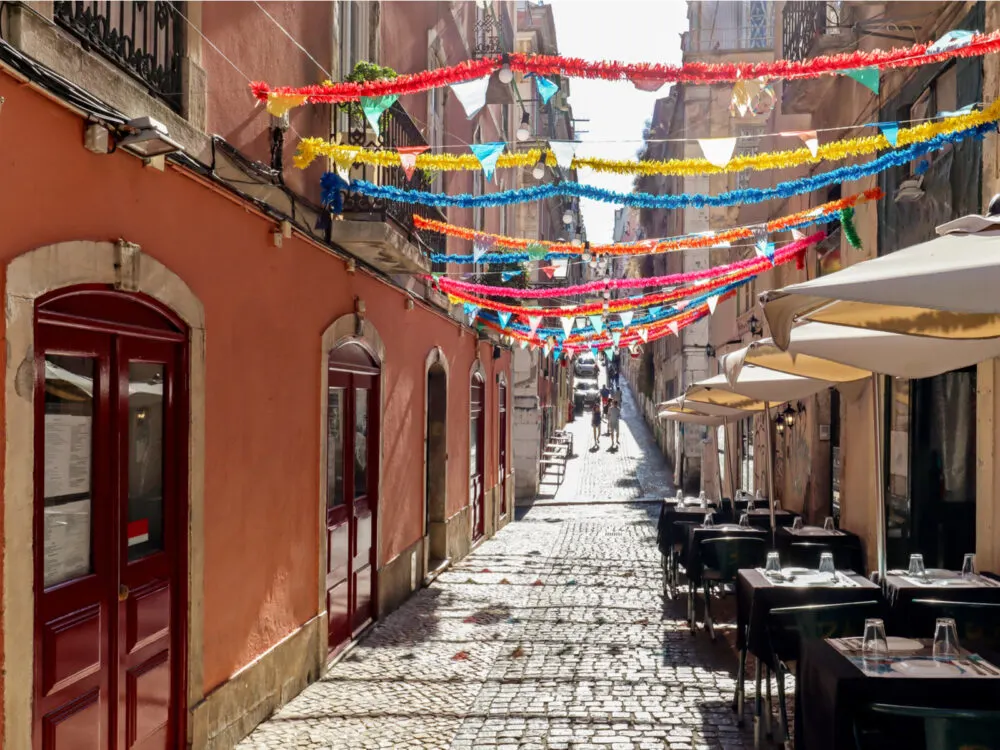
Pixel to the People/Shutterstock
Portugal’s big cities have certain neighborhoods that are sketchier than others. There aren’t really any no-go areas, just places that have higher crime rates and might feel less safe at night.
In Lisbon, the neighborhoods of Intendente, Martim Moniz, and Anjos have a reputation as a bit of a red light district, although they are rapidly gentrifying.
Lisbon has a few hot spots for pickpocketing, such as the 15, 28, and 25 tram lines, Sintra, Cascais, and Boca do Inferno.
Porto is another one of Portugal’s biggest cities. Avoid certain parts after dark, such as the area along the Douro River Waterfront, Ribeira, and the area near Sao Bento train station.
Things to Consider
Here are a few other things to keep in mind while visiting Portugal:
- Most drugs are decriminalized, including drugs that other countries consider “hard drugs,” but they are still technically illegal. Don’t partake in illegal substances.
- Don’t assume that people here speak Spanish. Portuguese is its own language and many locals get offended when people assume they speak Spanish.
- Some restaurants have a separate menu out front and then scam you with a more expensive menu once you enter, so check reviews and be careful if you enter a visible tourist trap.
- The sidewalks in most of Portugal’s cities are steep and slippery, so much so that some tourists injure themselves each year, so always pack sturdy walking shoes.
Frequently Asked Questions
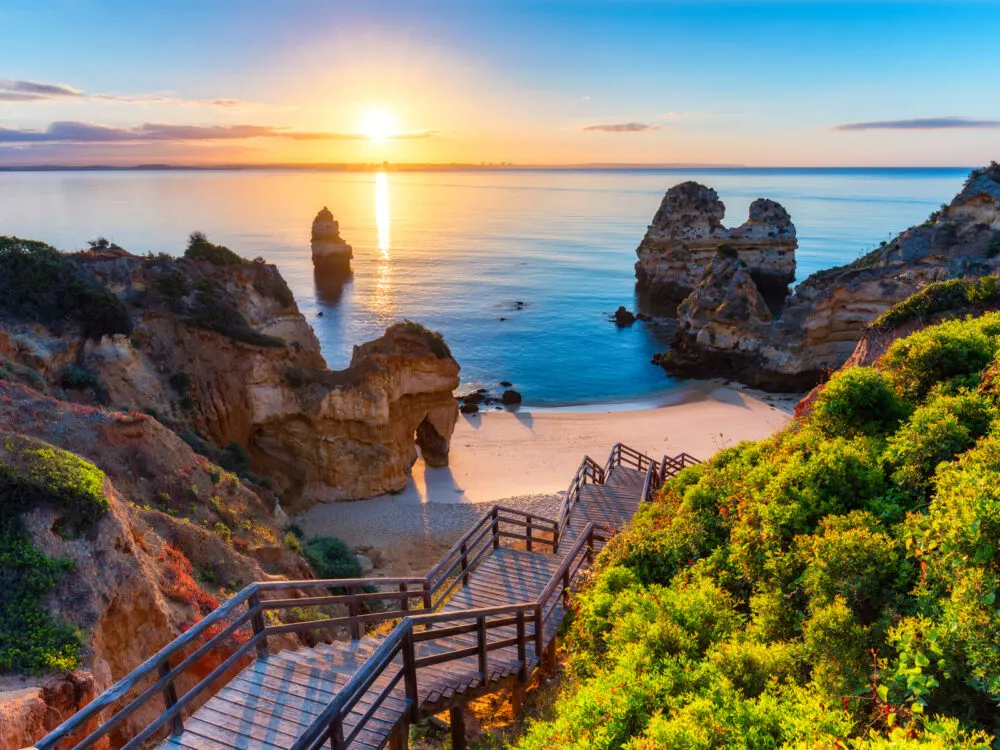
DaLiu/Shutterstock
Here are some other questions that curious visitors to Portugal wanted to ask:
What is the safest part of Portugal to visit?
It’s hard to pinpoint the safest part of Portugal when almost all areas are extremely safe! The Algarve is probably the safest region and the most family-friendly destination.
Is it safe to travel in Portugal as a woman?
Yes, it is safe to travel in Portugal as a female traveler because the crime rate is very low. Just be mindful that the culture can be quite conservative in some rural areas.
Which country is safer, Spain or Portugal?
Portugal is safer than Spain on most international metrics, from the Global Peace Index to international crime rates. Perhaps because it is smaller, the country is easier for the government to stabilize.
Is Portugal cheap or expensive?
Portugal is one of the most affordable destinations in Western Europe. Accommodation, food, and nightlife, along with other travel expenses, are all easy to budget.
Is Portugal safe to walk at night?
Most places in Portugal are safe to walk at night. However, the bigger cities do have some neighborhoods where you should be careful walking at night, especially if you’re alone.
So, Is Portugal Safe to Visit?
Portugal is one of the safest countries that you can visit on Earth! It has a very low crime rate and the crimes that do occur are mostly petty thefts. So what are you waiting for — book your trip to Portugal today!



